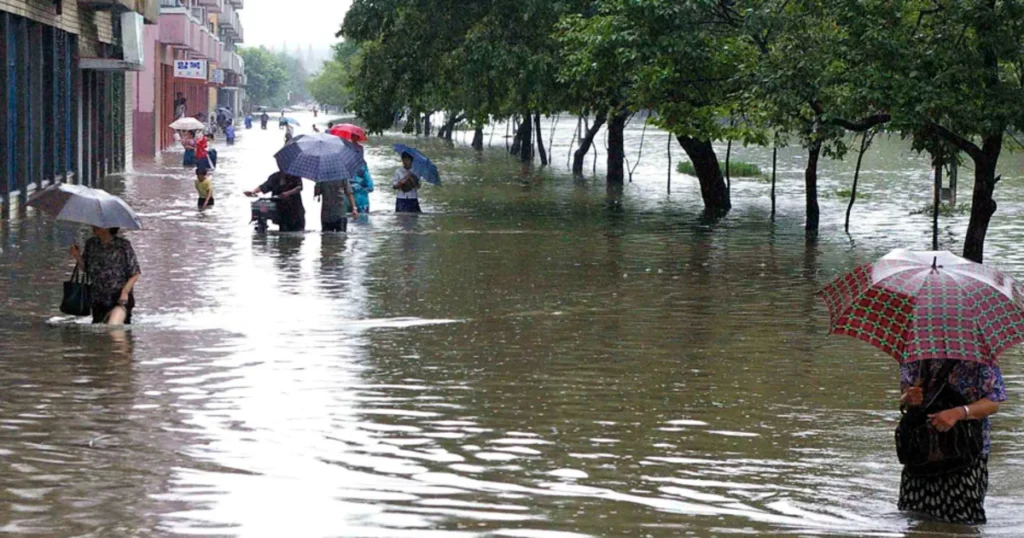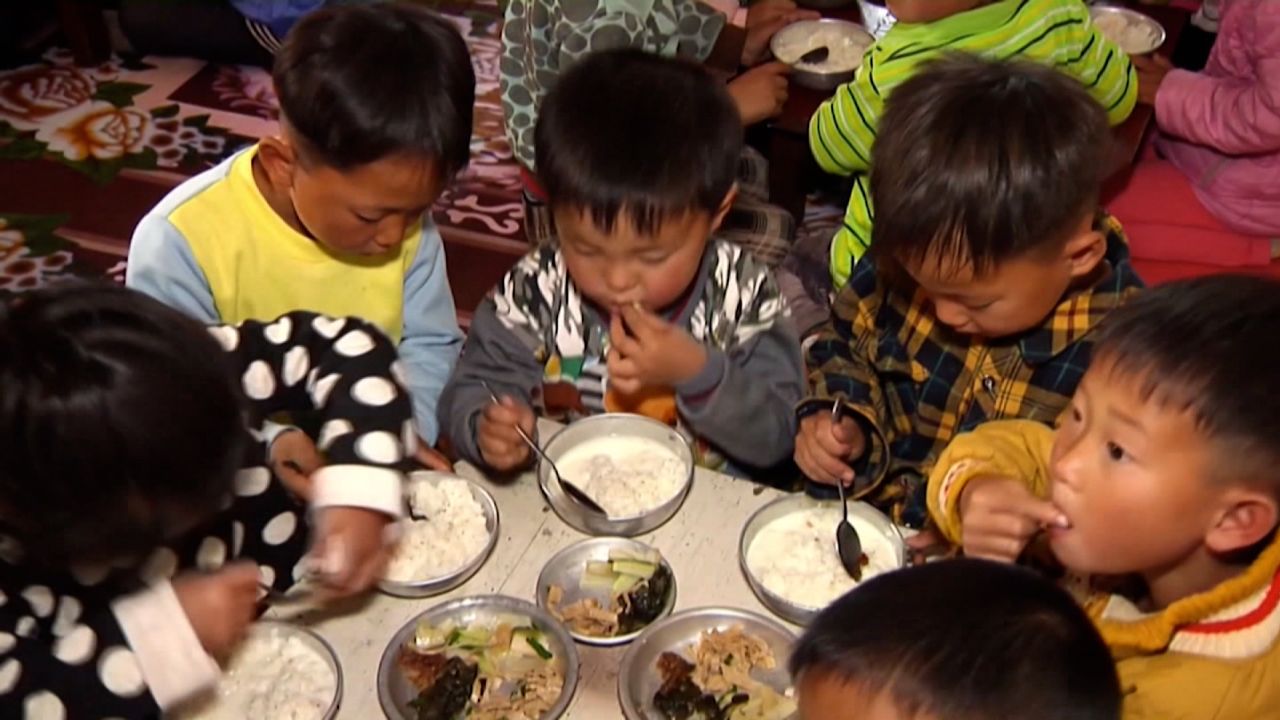Food & Climate
Will the North Korean Kim Jong Un have to ask South Korean help to save his people from food shortage because of floods, above‑average temperatures, and expected more rains, that threat rice crop?
North Korea, suffering from climate change and its own refusal of foreign aid, is threatened by food shortages, according to report seen by “Food & Climate” platform.
Record-breaking rain left thousands of people stranded by floods in North Korea prompting leader Kim Jong Un to declare an “emergency”, state media reports.
Such natural disasters are likely to compound existing issues like food scarcity and poor infrastructure. Flooding at the end of July and fears rain and above-average temperatures are threating agricultural production in this country, which is reluctant to accept any outside help, particularly from its enemy to the south.
On Thursday, August 15, South Korea celebrated the 79th anniversary of the end of Japanese colonization – but the focus was more on North Korea than on Japan. South Korean President Yoon Suk Yeol took advantage of the occasion to launch the idea of a “unification based on freedom” and set out a series of proposals and commitments, including an ongoing offer of aid to victims of natural disasters in its enemy, North Korea, according to “Le mond”.
This is a timely proposal, since North Korea is currently facing the consequences of major flooding along the Chinese border to its north. Furthermore, worsening weather conditions in late summer could affect its agricultural production, according to the UN’s Food and Agriculture Organization (FAO).
In an August 12 forecast for the period from August to October, the FAO stated that “heavy rains could exacerbate waterlogging and lead to further flooding, causing significant agricultural damage and which would cause food shortage and people displacement.
But U.S. and South Korean troops kicked off a large-scale exercise Monday aimed at strengthening their combined defense capabilities against nuclear-armed North Korea, which again accused the allies of practicing an invasion, according to “cbc”.
Above‑average temperatures are forecast during the same period, raising the risk of increased incidences of pest and disease infestations, and potentially reduced yields.” The harvest of staple crops (rice, maize and, to a lesser extent, potatoes, millet and sorghum) is due to start at the end of August.
New food shortage
New food shortage would exacerbate the problems of undernourishment that the population has suffered from since the great famine of the mid-1990s. Several hundred thousand people died as a result.
But the issue is a priority for the regime. In his first public speech in 2012, North Korean leader Kim Jong-Un promised that North Koreans would “never have to tighten their belts again.” Subsequently, he implemented agricultural reforms in order to introduce some private management into the sector.
USAID Administrator Andrew S. Natsios’ new book, said that an annual FAO crop assessment determined that the North Korean famine was largely caused by the country’s Stalinist economic system—not by flooding, as the government still maintains. “North Korean and Cuba are the world’s only Stalinist agricultural systems, where there is no incentive to produce food,” said Natsios. “The production of food actually went into reverse during the famine.” In addition, Russia and China had stopped sending heavily-subsidized food supplies and oil to North Korea after the end of the Cold War, according to “Wilson center”.

And short-term government decisions, Natsios argued, exacerbated that disaster. In 1995, the regime “triaged” the entire northeast region of the country—in essence, blocking food shipments to that portion of the population in order to ensure subsistence food supplies for the capital Pyongyang, whose support was critical to the government. “No food deliveries were made to that region for two and half years,” said Natsios. Workers in “unessential industries” such as mining were also triaged.
Now, North Korea is one of the poorest countries in the world. Recent estimates are scarce, but CIA World Factbook estimates its gross domestic product per capita was around $1,700 in 2015, according to “BBC”.
That said, the actual situation and numbers are unclear, given North Korea’s opaque economy.

